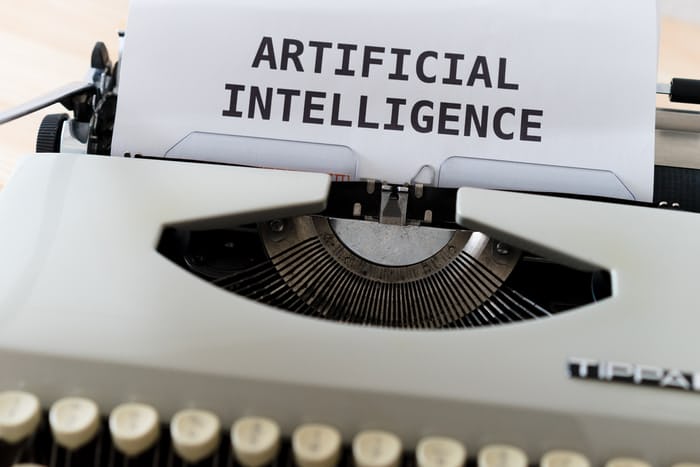For decades, human beings have been trying to create human intelligence in machines. Artificial Intelligence or AI is a field that is notoriously hard to define. A simplistic definition can be the science that makes machines smarter, to the point where they can carry out tasks that a human being can.
While many sectors have seen a tremendous impact of artificial intelligence in the past few years, the role of artificial intelligence in the healthcare sector remains unrivaled.
From improving healthcare operations and decision making to giving clinical care a whole new definition, AI is redefining modern healthcare.
So, if you are looking for artificial intelligence jobs, read this blog to discover how AI in healthcare is revolutionizing the sector and its growing role in creating AI, RPA, and machine learning jobs. Then, we can together decide if AI is indeed the future.
The impact of AI on the healthcare sector
With artificial intelligence, doctors have found a better, more effective way to treat patients fighting critical illnesses like breast cancer, strokes, glaucoma, etc.
AI in the healthcare sector is revolutionizing treatments and has the potential to save many lives while cutting costs by billions of dollars each year.
It has opened several new avenues and has transformed how we look at medicine from mundane clinical care to complicated surgeries.
Artificial intelligence has impacted the healthcare sector to an extent where people believe that robotic nurses could be the future of healthcare.
Artificial intelligence has helped the sector by providing improved clinical care and diagnosis, new drug development, identifying crucial pain points in the early stages, and impactful decision-making.
It is safe to say that with AI, healthcare and medicine professionals have pioneered the new, improved healing process.
How artificial intelligence is revolutionizing healthcare?
According to a study by Forbes,
AI is being adopted by 46% of service operations, 28% of products and services development, 19% of risk management, 21% of supply chain management, and 17% of marketing and sales in the healthcare industry.
Here are the top 5 ways in which artificial intelligence is revolutionizing healthcare.
1. AI is creating new job opportunities in the healthcare sector
Most of us see Artificial Intelligence (AI) as the end of the human workforce, but that is not true.
AI in healthcare has the potential to bring about several new career avenues, leading to a consequent rise in job opportunities in the coming years.
This technology change would lead to a drastic shift in the role of the workforce, calling for a need to adapt and acquire new skill sets like machine learning, robotics, etc.
With AI taking the front seat, skills like process excellence, hospital business management, programming languages, software programming, etc, combined with attributes like flexibility, creative thinking, and problem-solving will gain the upper hand, making upskilling the need of the hour.
Some path-breaking career avenues AI will create in healthcare are:
-
AI chatbot designers- AI aims to simplify healthcare processes- from handling appointments to defining treatment plans, for which AI chatbots will be in high demand.
An increase in demand for these chatbots will lead to several openings for designers needed to design these chatbots.
-
Tele-surgery - With robot-assisted surgeries coming into the picture, the demand for robotics specialists will see a surge in demand.
In the near future, we can expect certifications and degrees to be provided to conduct bot-assisted surgeries, making way for a new field.
-
Deep learning experts- The sole purpose of deep learning is to provide AI-based solutions at every stage of a patient's treatment.
Artificial intelligence is the new future, and with the significant development it has shown in recent years, AI in healthcare can change the sector from head to toe.
It makes for a great career path for people with a knack for natural language processing, deep learning, coding, and an interest in computer technology and mathematics. Click here to explore job openings in Artificial Intelligence.
2. Robotic Process Automation (RPA) in healthcare
Modern healthcare systems strive to reach everyone in need of medical help and provide them with high-quality healthcare services. Robotic Process Automation (RPA) is a technology that can help achieve this vision.
RPA allows healthcare establishments to streamline and make their processes more efficient. It includes an automatic check-in process for patients, appointment scheduling, tracking healthcare plans, etc.
The role of Robotic process automation in the healthcare sector has numerous real-world applications such as:
-
Facilitating front office support with reduced response time for patients, helping them and the clinic.
-
Handle online scheduling through information received about appointment requests, diagnosis, personal details, insurance plans, etc.
-
RPA tracks, traces, and documents all processes to make it easier for doctors who now don't have to keep manual records.
-
RPA boasts improved quality, accuracy, and improved productivity.
With machine learning & AI in healthcare, RPA doesn't just simplify repetitive functions but also deals with crucial tasks like salary processing, software programming, automation of complex tasks, etc.
Pursuing a career in Robotic Process Automation is easy as it doesn't have defined pre-requisites and anyone can learn how to operate RPA tools.
Given that it is even less technical than Java, people who have a working knowledge of coding languages and traditional test automation tools are the perfect candidates to pursue a career in RPA.
It is also a suitable career option for those working with Quality Assurance (QA) and software testing. Check out job openings in RPA.
3. Machine learning is revolutionizing illness prevention and diagnosis
Machine learning has taken the healthcare industry by storm.
AI devices that use machine learning have a considerable impact on the sector.
It aids healthcare applications by collecting patient information and processing it, saving doctors the trouble of going through manual data entry.
With its ability to convert data into clinical insights, it helps doctors to diagnose patients and prepare treatment plans.
Gaining relevance by the hour, machine learning engineering appears to be an ideal career choice for those with an interest in data analysis, crunching numbers, statistics, and software development languages like Python, etc. Explore machine learning jobs now.
4. AI in healthcare has transformed clinical treatment
There was a time when AI was exclusively available for research and academic purposes only.
However, the picture has changed today.
Thanks to this change, AI has led to meaningful developments and has improved the accuracy of diagnosis and treatment.
Artificial intelligence is helping radiologists with its path-breaking innovation in diagnosis and treatment.
By bringing together human intelligence and deep learning algorithms, AI in healthcare has opened up new frontiers for personalized diagnosis and treatment not only for rare diseases but for general treatments too.
With a shift of focus on mundane treatments, AI is rapidly becoming a part of everyday clinical procedures, revolutionizing basic healthcare for everyone.
5. AI in medicine can help in testing new drugs
According to IBEF, the Indian pharmaceutical sector supplies over 50% of global demand for various vaccines, 40% of generic demand in the US, and 25% of all medicine in the UK.
While developing medication is challenging, testing it is far more critical. And as it is a manual process it takes excessive time and resources.
Pharmaceutical industries have found their solution in the form of AI.
AI in medicine can reduce the number of trial cycles significantly, saving a lot of time in trials, which is one of the primary goals medical professionals are trying to achieve.
AI can also help with financial decisions concerning the development and trial of medicines, eliminating potential errors to a great extent.
Conclusion
The possibilities of innovation with AI in healthcare are endless. The one thing we can be sure about is that healthcare will be a different experience in the years to come.
And contrary to the belief that AI will replace the need for humans, the fact remains that advanced machine learning is creating many more jobs than the ones it will take away.
Undoubtedly, AI in healthcare is a lucrative field to pursue, and skills like artificial intelligence, machine learning engineering, and RPA can help you build a successful career.
With impressive growth in employment opportunities, competitive industry trends, and salaries much higher than the national average, AI in healthcare stands out as a great career choice.







